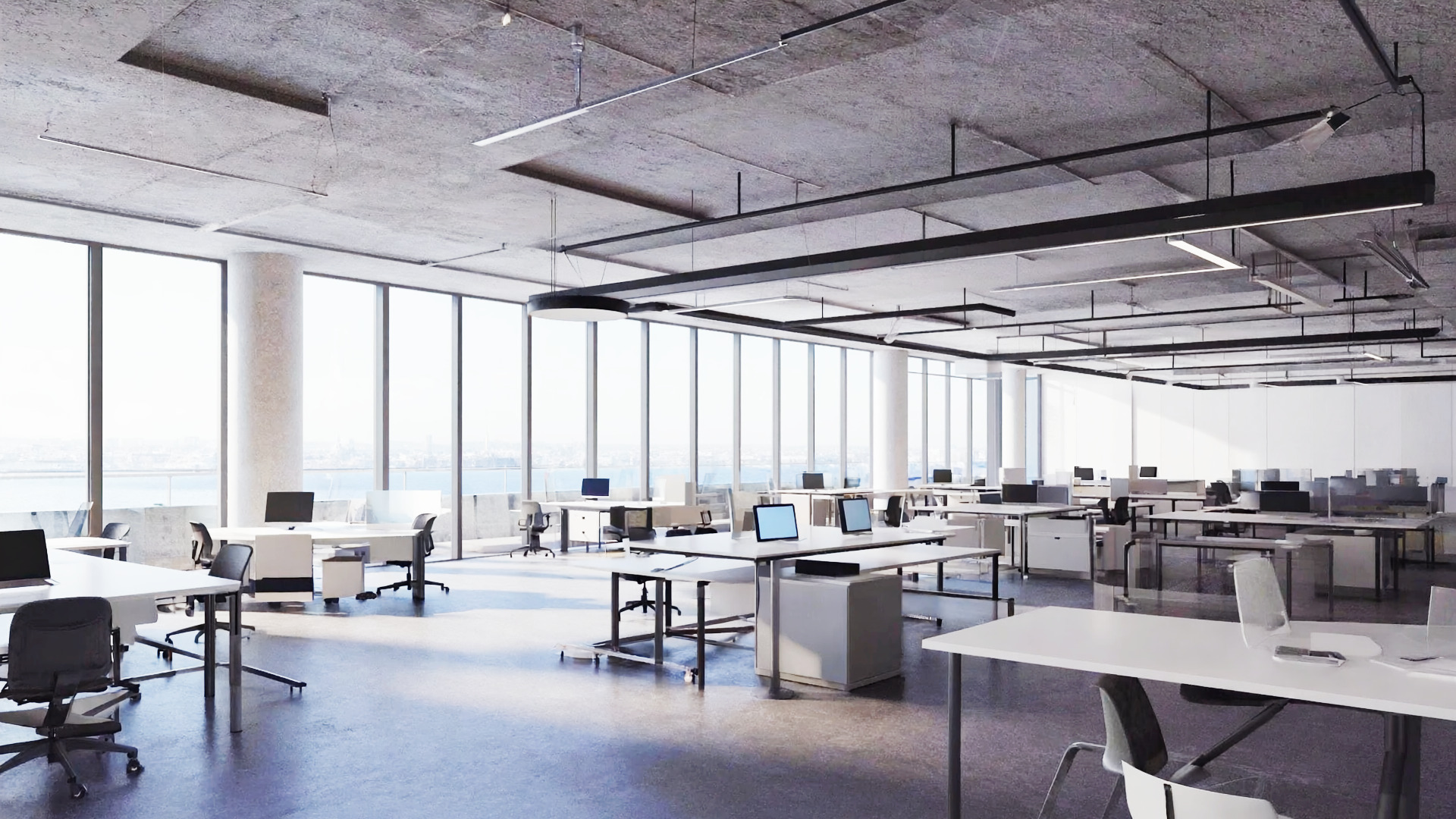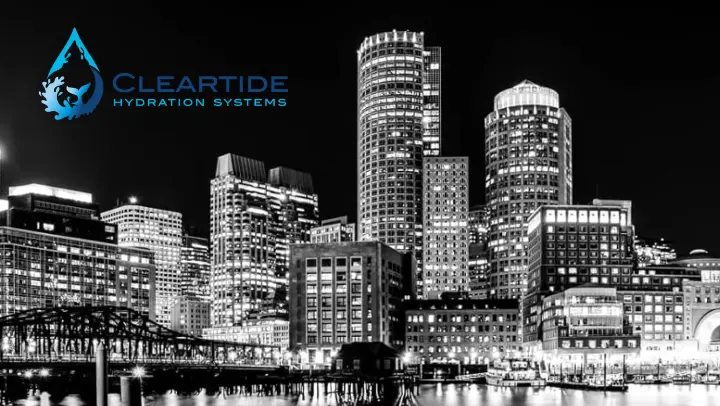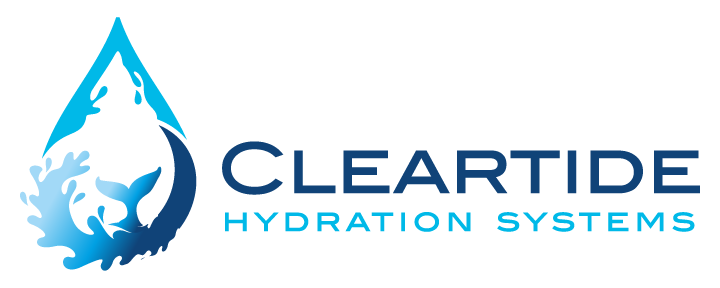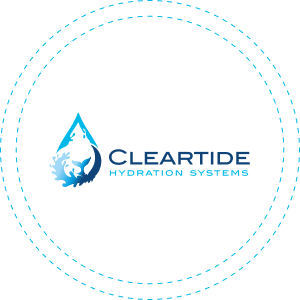In today's health-conscious workplace, ensuring the quality of your office water is paramount. Businesses in Greater Boston and New England are increasingly aware of the importance of providing clean, safe, and great-tasting water for their employees and visitors. But how do you know if your water is truly up to par? This article delves into the essential water quality testing protocols, shedding light on what to test for, why it matters, and how to implement effective water filtration strategies.
We'll explore the various contaminants that can lurk in your office water supply, from lead and bacteria to chlorine and other unwanted chemicals. Understanding these potential risks is the first step in creating a healthier and more productive work environment. Moreover, we'll examine the different testing methods available and provide guidance on choosing the right approach for your specific needs. Finally, we'll showcase how Cleartide Hydration Systems can help you proactively manage your water quality, ensuring a consistently pure and refreshing hydration experience for everyone in your workplace.
Understanding the Importance of Workplace Water Quality Testing

Workplace water quality testing is more than just a formality; it's a crucial aspect of employee health and well-being, and it can impact productivity. Poor water quality can lead to a range of health issues, from minor gastrointestinal upsets to more serious long-term health problems. Moreover, unpleasant taste or odor can discourage employees from staying hydrated, leading to decreased focus and energy levels.
Regular testing helps identify potential contaminants that can compromise water safety. These contaminants can come from various sources, including aging infrastructure, industrial runoff, and even the water treatment process itself. By understanding the specific risks in your area, you can take proactive steps to mitigate them.
Consider the example of a Boston-based tech company that identified elevated levels of lead in their office water supply, likely due to old pipes. The presence of lead posed a serious, long-term health risk and highlighted a critical asset management problem. By implementing a comprehensive water filtration system, the company not only addressed the health risk but also saw a significant improvement in employee satisfaction and performance. This highlights the direct link between water quality and workplace well-being.
Furthermore, regular testing can help you comply with local and federal regulations regarding water quality, particularly the Safe Drinking Water Act (SDWA). Failing to meet these standards can result in fines and reputational damage. A proactive approach to water quality testing demonstrates your commitment to employee health and safety, fostering a positive and trustworthy work environment.
Key Contaminants to Test For in Your Office Water Supply
Knowing what to test for is essential for effective workplace water quality testing. Here are some of the most common and concerning contaminants to consider:
- Lead: A neurotoxin that can cause serious health problems. Lead can leach into water from old pipes and fixtures. Testing for lead is particularly important in older buildings common in areas like Boston, where businesses may need to adhere to the Lead and Copper Rule (LCR) Action Levels.
- Bacteria and Viruses: Microorganisms that can cause gastrointestinal illnesses and other infections. Common culprits include E. coli and Coliform Bacteria. Regular testing is essential to ensure water is free from harmful pathogens.
- Chlorine and Chloramines: Chemicals used to disinfect water but can also contribute to unpleasant taste and odor. While effective at killing bacteria, these disinfectants can react with organic matter to form harmful Disinfection Byproducts (DBPs), such as trihalomethanes (THMs).
- PFAS (Per- and Polyfluoroalkyl Substances): A group of man-made chemicals that are persistent in the environment and can accumulate in the human body. PFAS have been linked to various health problems. These are a growing concern in many areas of New England, where state standards are often stricter than federal guidelines.
- Sediment and Turbidity: Particulate matter that can make water appear cloudy and affect its taste. Sediment can also clog pipes and fixtures.
- Volatile Organic Compounds (VOCs): Chemicals that can evaporate into the air and cause respiratory problems and other health issues. VOCs can come from industrial solvents, pesticides, and other sources.
When selecting a water testing lab, ensure they are certified and accredited to perform the specific tests you require. Look for certifications from the EPA or your local health department. A reputable lab will provide accurate and reliable results, along with guidance on interpreting the findings.
Water Quality Testing Methods: A Comprehensive Overview

Several water quality testing methods are available, each with its own advantages and limitations. Understanding these methods can help you choose the right approach for your specific needs:
- DIY Test Kits: These kits are readily available. They are relatively inexpensive and easy to use, but their accuracy can vary. DIY kits are best suited for initial screening for specific contaminants, such as lead or chlorine.
- Laboratory Testing: This involves sending a water sample to a certified laboratory for analysis. Lab testing is more accurate and comprehensive than DIY kits, and it can detect a wider range of contaminants. This is the recommended approach for a thorough assessment of your water quality.
- Online Water Quality Reports: Many municipalities and water utilities publish online water quality reports that provide information on the levels of various contaminants in the public water supply. While helpful, these reports may not reflect the actual water quality in your specific building, especially if you have old pipes or fixtures.
After receiving the test results, carefully review the report and compare the levels of contaminants to the EPA's Maximum Contaminant Levels (MCLs) or relevant Action Levels (ALs). If any contaminants exceed these limits, take immediate action to address the problem. This may involve installing a water filtration system, replacing old pipes, or contacting your local water utility.
Implementing Effective Water Filtration Protocols in the Workplace
Once you've identified potential water quality issues, implementing effective water filtration protocols is crucial. Several filtration technologies are available, each designed to remove specific contaminants:
- Activated Carbon Filters: These filters are effective at removing chlorine, sediment, and VOCs, significantly improving the taste and odor of water.
- Reverse Osmosis (RO) Systems: RO systems use a semi-permeable membrane to remove a wide range of contaminants, including lead, bacteria, and PFAS. RO systems are highly effective but can be more expensive than other options.
- UV Sterilization: UV sterilizers use ultraviolet light to kill bacteria and viruses in water. UV sterilization is a chemical-free disinfection method that does not affect the taste or odor of water.
- Water Filtration Fountains and Dispensers: These units offer a convenient and cost-effective way to provide filtered water to employees and visitors. They can be plumbed directly into your water line, eliminating the need for bottled water.
When choosing a water filtration system, consider the specific contaminants you need to remove, the volume of water you need to filter, and your budget. It's also important to consider the maintenance requirements of the system.
Cleartide Hydration Systems offers a comprehensive range of water filtration solutions designed to meet the unique needs of businesses in Greater Boston and New England. Our systems use advanced purification and UV sterilization technologies to ensure consistently pure and refreshing water. We also offer flat-rate monthly billing with no surprise fees, making it easy to budget for your water filtration needs. With Cleartide, you can eliminate the hassle of bottled water, reduce your environmental footprint, and provide your employees with the best possible hydration experience.
The Cleartide Advantage: Ensuring Superior Water Quality for Your Workplace

Cleartide Hydration Systems stands out as a premier provider of workplace hydration solutions in Greater Boston and New England. We understand the unique challenges businesses face when it comes to ensuring high-quality water for their employees and visitors. That's why we offer a comprehensive approach that goes beyond simply providing water filtration systems.
Our systems are designed to deliver unlimited, great-tasting filtered water and ice on demand. This eliminates the need for bottled water, reducing waste and saving you money. Our advanced purification and UV sterilization technologies remove a wide range of contaminants, ensuring that your water is safe, healthy, and delicious.
But what truly sets Cleartide apart is our commitment to local service and flat-rate billing. We provide expert installation, maintenance, and support, ensuring that your system operates smoothly and efficiently. Our flat-rate monthly billing eliminates the surprise fees and hidden costs associated with other water filtration providers. With Cleartide, you can enjoy unlimited, filtered water and ice without breaking the bank.
Consider the case of a large financial institution in downtown Boston that switched from bottled water to Cleartide's water filtration system. The company not only reduced its environmental footprint but also saved thousands of dollars per year on water costs. Employees raved about the improved taste and convenience of the filtered water, leading to increased hydration and productivity. This is just one example of how Cleartide can transform your workplace hydration experience.
By choosing Cleartide, you're not just investing in a water filtration system; you're investing in the health, well-being, and productivity of your employees. You're also demonstrating your commitment to sustainability and environmental responsibility. Let us help you create a healthier and more refreshing workplace for everyone.
Conclusion
Ensuring workplace water quality is an investment in employee health, productivity, and your company's reputation. By understanding the importance of water quality testing, identifying key contaminants, and implementing effective filtration protocols, you can create a healthier and more refreshing work environment. Cleartide Hydration Systems offers a comprehensive range of solutions designed to meet the unique needs of businesses in Greater Boston and New England. With our advanced technology, local service, and flat-rate billing, you can enjoy unlimited, filtered water and ice without the hassle of bottled water or hidden fees.
Get Started
Ready to transform your workplace hydration experience? Contact Cleartide today for a free consultation and discover how we can help you ensure superior water quality for your employees and visitors. Visit our website or call us to learn more about our water filtration solutions and flat-rate billing options.

